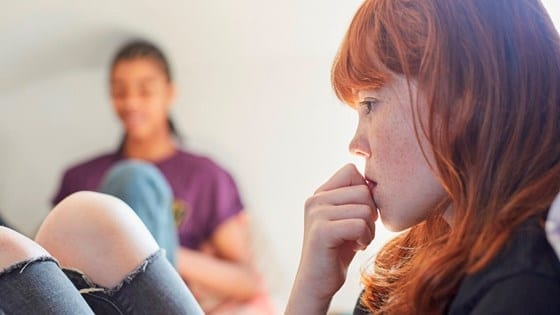- Childline has received 304 contacts from Welsh children worried about peer-on-peer sexual abuse in the past two years.
- The NSPCC-supported counselling service has seen a rise of nearly 75 per cent of contacts in that period – receiving 82 more calls in 2017/2018 than the previous year
- Across the UK, children and young people have told counsellors they are confused about sexual consent
- Childline has re-launched #ListenToYourSelfie campaign to help teenagers recognise if they are in an unhealthy relationshipFigures supplied by the NSPCC-supported service show there were 111 counselling sessions delivered in 2016/2017. There were 304 calls or online contacts over both years but that figure could be significantly higher, with many children and young people choosing not to disclose their country of origin.
- Across the UK, 3,878 counselling sessions were undertaken with young people concerned about peer-on-peer abuse in 2017/18 – a 29 per cent increase on the previous year.
- The number of contacts from Welsh children has increased by 82 in 2017/2018 – totalling 193; a rise of almost 75 per cent on the previous year.
- MORE than 300 children in Wales have called Childline in the past two years to discuss worries about peer-on-peer sexual abuse.
However, the service believes the scale of the problem could be much greater, as it is worried many children and teenagers do not understand that what has happened to them is abuse.
Childline has re-launched the #ListenToYourSelfie campaign to try to prevent peer-on-peer sexual abuse and to encourage those that have suffered it to speak up.
It is working with the International Centre for Child Protection, at the University of Kent, to promote the online tool ‘Looking Out for Lottie’.
Lottie’s story aims to help young people spot when a relationship might not feel quite right and to recognise early signs of grooming, through a series of social media posts, messages from her friends and private messages from boyfriend Jake.
The campaign also includes two short films based on real-life scenarios affecting young people.
These videos are intended to support young people to understand the importance of consent and their right to say ‘no’ if anything makes them feel uncomfortable or anxious.
Earlier this year the Welsh Government’s cabinet secretary for education announced plans to overhaul sexual education in Wales, which NSPCC Cymru has long called for.
The changes, described as a ‘turning point’ for the national curriculum by the charity, will see relationship and sexuality education (RSE) become a statutory part of Welsh education for children aged five to 16 from 2022.
Dame Esther Rantzen, the founder and president of Childline said: “Young people tell us that they have been compelled to take part in behaviour against their will, which sometimes involves them suffering violence.
“We know that relationships can be confusing and it can be hard to know if the dynamic is changing and things are starting to go wrong.
“If you ever feel pressured to do something you don’t want to, we urge you to get support, either from a friend, a trusted adult or Childline.
“The Childline service is confidential, and you can contact us via our message board on our website.”
Young people who contacted Childline about peer-on-peer sexual abuse revealed a general lack of understanding about consent, with some feeling unsure about whether something is abuse if they are in a relationship.
One girl aged 14 said: “My boyfriend is sometimes violent towards me and recently he’s forced me into doing sexual things when I didn’t want to. It wasn’t always this way but it’s been going on for a few weeks now and I’m worried it’s going to get worse. I’m scared of how he would react if I tried to end the relationship. I don’t feel like I can speak to someone without my parents or friends at school finding out. I’m really scared.”
Any child worried about peer-on-peer sexual abuse can call Childline on 0800 11 11 or go online at www.childline.org.uk.
There is also an app – ‘For Me’ available for download and is supported on devices using the Apple operating system.
Any adult who is concerned about a child can call the NSPCC Helpline on 0808 800 5000.
Help keep news FREE for our readers
Supporting your local community newspaper/online news outlet is crucial now more than ever. If you believe in independent journalism, then consider making a valuable contribution by making a one-time or monthly donation. We operate in rural areas where providing unbiased news can be challenging. Read More About Supporting The West Wales Chronicle





















